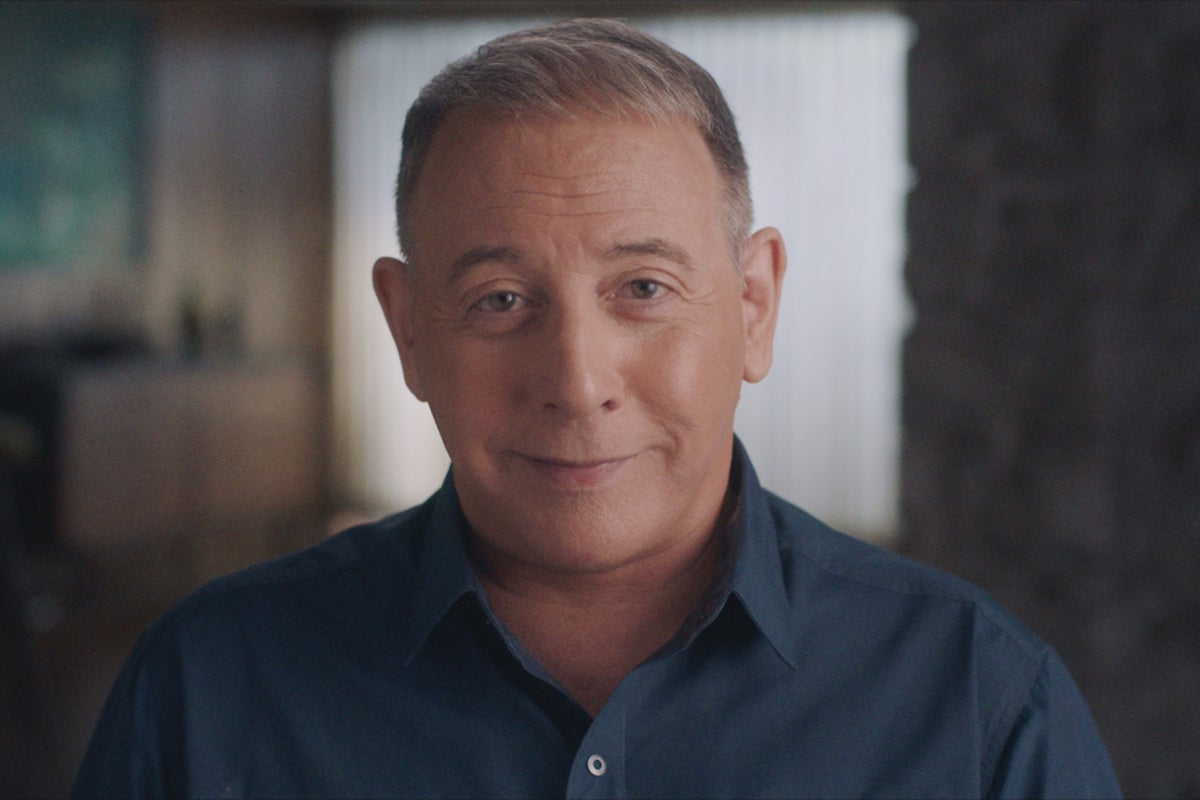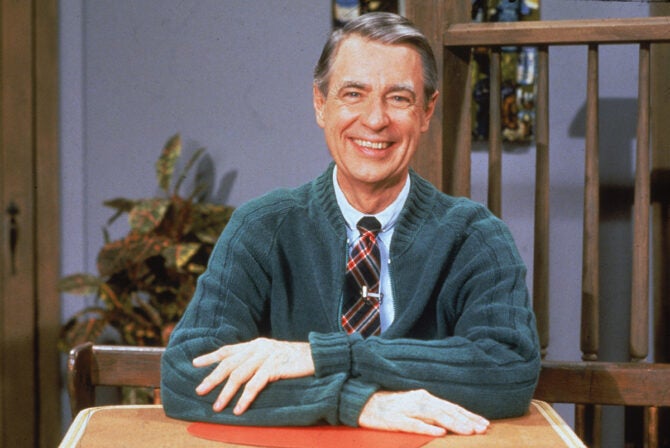Paul Reubens, who most of us know as Pee-Wee Herman, was the son of a pioneer. In the new documentary series “Pee-Wee As Himself,” now streaming on Max, the audience learns a lot about Paul and his lineage.
His father, Milton Rubenfeld, who Reubens describes as a swashbuckler, an American Air Force pilot and a WWII veteran, was one of five pilots who helped start Israel’s Air Force.
Reubens was very much his father’s son, at least when it came to his career. He was a daredevil, a swashbuckler, a pioneer; his dad once got into trouble for flying under the George Washington Bridge, and Reubens’ career was full of similar larger-than-life stunts, the kind that changed the history of comedy and of children’s television.
“Pee-Wee’s Big Adventure,” “Pee-wee’s Playhouse” and “Pee-Wee’s Big Top,” along with Reubens’ other specials, were diverse, artistic and inventive. They were inspired by the children’s shows of Reubens’ youth, but Reubens created a whole new visual language. With his movies and show, Reubens taught generations of kids most often by showing, not saying, how wonderful it is to be one’s whole technicolor self.
Yet Matt Wolf’s tender and revealing documentary shows that he did it very much at the expense of being fully himself in the public eye.
The dreamy documentary takes us into Reubens’ life using old photos and footage and through shots of Reubens’ huge collection of memorabilia. His life feels in a way like one of those paint-chipped dolls that he collected, a matryoshka, a nesting doll. There was Pee-Wee Herman, who we all knew, one of many characters that Reubens came up with when he was in The Groundlings (a Los Angeles-based improv troupe), there was Paul Reubens, the actor who would sometimes — rarely — make public appearances as himself, and then there was Paul Reubens, the man, hidden to all but a few.
And yet in each layer, very much like a nesting doll, you can find the outlines of the layer below. This documentary makes it even more clear: Pee-Wee’s red-tinted lips, his dances in high heels, his childlike wonder and playfulness — they’re all part of Reubens himself.
Paul Reubens was born Paul Rubenfeld to a Jewish family — father Milton and mother Judy — in Peekskill, New York. When he was still a kid his family moved to Sarasota, Florida. When he was a student at CalArts, it seemed, he lived as his entire self, as a gay man. This documentary is the first time Reubens, the man behind Pee-Wee Herman, publicly utters these words, and you can feel the tension that comes with that release, immediately covered up with a joke, or two, or a dozen.
It’s clear that it wasn’t Reubens’ Jewish family that stood in the way of him and being an out gay man. When his father realized that he had a boyfriend, he wrote him a moving letter urging him, among other things, to be the greatest homosexual he could be, a line Reubens obviously turns into humor a minute later. And his sister, Abby Rubenfeld, is an out lesbian civil rights attorney who has fought for LGBTQ+ rights in Tennessee and beyond. Rubenfeld cites her experiences growing up Jewish in Florida and not being allowed into “exclusive clubs” as what drove her to fight for the disenfranchised.
While Reubens doesn’t talk about his Jewish identity in this documentary and hasn’t spoken on it much through his career, it’s clear that his Jewish parents meant so much to him. In the documentary, he calls them a vaudeville team, talks about how his mother would create her own worlds, just like he would go on to do with Pee-Wee. His parents stood by him through thick and thin, and even though he and his father had tensions over the latter’s macho personality, he spent the last few months of Milton’s life with him and Judy in Florida, helping her care for him in his dying days.
It was the reality of being in Hollywood that made Herman decide to hide his true self. He didn’t think he had any chance of being a successful actor if he was out. He was a man who once did drag, who lived with his then boyfriend, Guy, and built a quaint and cozy life of queer domesticity before choosing his career over what his father called, “playing house.” And that career meant going fully back into the closet.
But what happened to Reubens, in spite of his careful choice, is very much the definition of a gay man’s worst nightmare. He was labeled a pervert for an indecent exposure charge at an adult film theater, an accusation that he refutes. He was then labeled a pedophile because of a politically motivated “gay witch-hunt,” which led LA police to search his house and uncover his collection of vintage gay erotica — one that contained no child pornography at all. But a child entertainer being labeled as pedophile, even falsely, was a kind of death sentence that he never recovered from.
Reubens did his best to protect his inner self through his last days; he worked on this documentary in his last years of life, but no one working on it knew about the cancer he was dealing with, which led to his death in 2023 at age 70. Unfortunately he passed away before he could talk about the charges that upended his life in a candid way for the first time for the documentary.
He did leave Wolf with one final message on the day before his death. In a voicemail where the pain from what happened to him still feels so palpable, even on his deathbed, he speaks to a chasm that never really closed, that forever painted his past and future. It’s hard to think of what Reubens endured in the 90s as something that is “far away” from where we are now; it doesn’t really feel so distant in these days when the false notion that queer people and their stories are unsafe for children is causing so much strife and material harm to people across the country.
The documentary clearly vindicates Reubens in a way that brokers no argument, but it also does so much more than that. It shows the rich timeline of his career. It shows us the artists who inspired him. It interrogates the nature of fame, of wanting to be seen and not seen, and what the famous owe (or do not owe) the public. It’s a portrait of a complex man’s life — a man who cared deeply about his friends, was defensive and vulnerable, who created art out of love. A generation of children grew up on Pee-Wee and loved him so dearly. So many of us have felt seen and changed by Pee-Wee Herman, and this documentary celebrates that, but it also allows us to finally meet Paul Reubens, the man, as close and personal as possible, to see and love Pee-Wee as himself.








